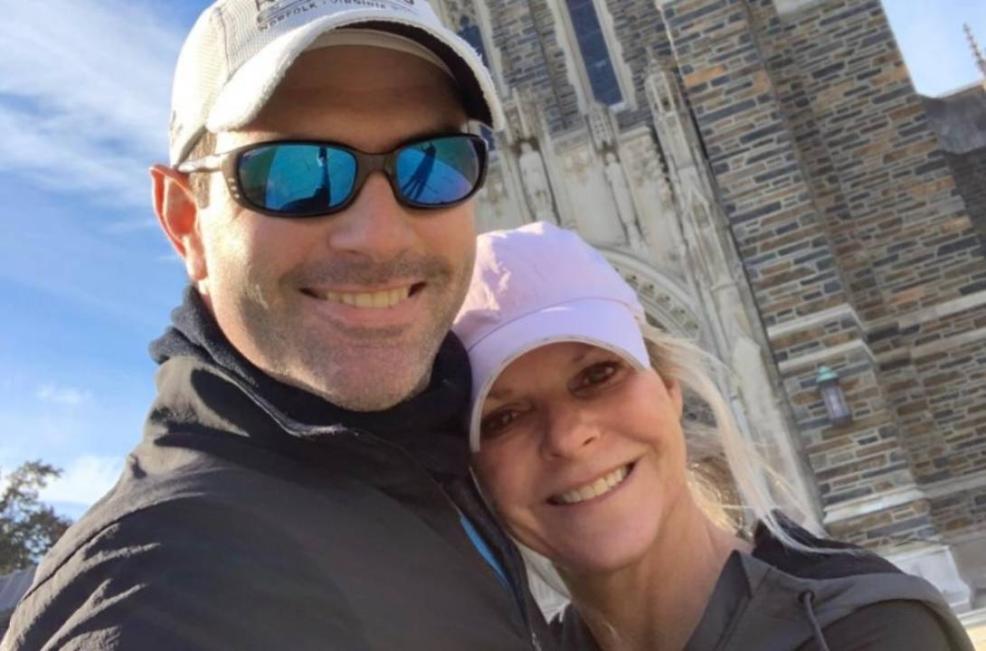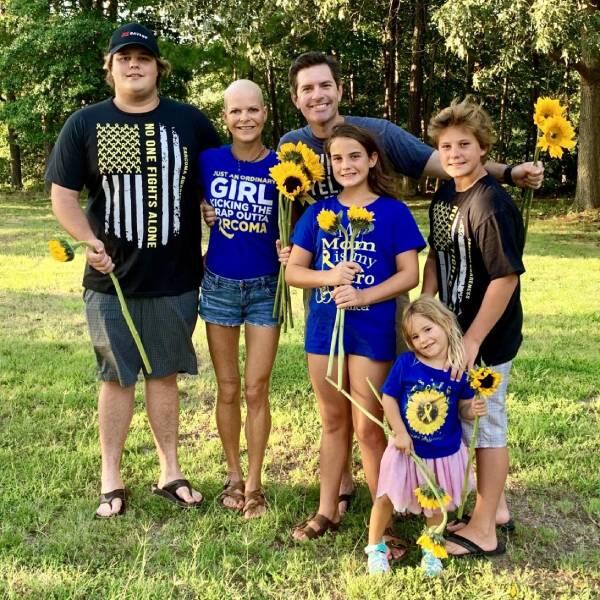Chantal Rose-Denman, 44, has been running since she was 15 years old.
Blessed with a physical ability denied her father — who suffered from adult-onset myotonic muscular dystrophy before his untimely death — she ran her heart out.
Shortly after the birth of her first child 17 years ago, she began to run competitively. Marathons at first. A decade ago, with two more children added to her brood, she also took up ultra-marathons — trail running 50Ks or 50 milers about twice a year.
There was no stopping her stamina for running or mothering, until the day, last September, that she felt a lump behind her right femur.
“I thought, “This is weird,” but I could still run, so I didn’t think much of it,” shared Rose-Denman, who'd been running eight miles a day all summer and was also busy chasing after a one-year-old.
When after a month the bulge appeared to grow and she started to lose range-of-motion in her right leg, the Virginia Beach resident made an appointment to see a local orthopedist, expecting to learn her knee was swelling from a stress fracture. An X-ray, then an MRI, then an MRI with contrast was requested.
“That’s when I started thinking, “Something’s not right,”” Rose-Denman remembered. “I called a friend who’s a surgeon and told him I was nervous. I actually said as a joke, “Could this be cancer?” He said, “No, cancer doesn’t generally grow there.”"
The scans told another story. Her orthopedist, with tears in his eyes, told her and her husband Ashford that he suspected a slow-growing osteosarcoma. Bone cancer. But, he reassured her that a simple surgery might be enough to take care of it.
“It was Friday and I’d been planning to run an ultra the next day, so I asked him if I still could,” said Rose-Denman. “He said, “I want you to run this race.”
A cancer specialist in Richmond that the couple went to see the following week concurred that Rose-Denman’s cancer would probably only require surgery; no chemotherapy.
As good as that sounded, she recalled, “Something in our gut told us to find someone else.”
After some research, they found orthopedic cancer surgeon Brian Brigman, MD, PhD, and medical oncologist Richard Riedel, MD, at Duke Cancer Center in Durham.
“They were able to see us so quickly,” said Rose-Denman. “We just felt immediately comfortable and we trusted them.”
When she came-to after surgery, this past January, she learned that the tumor quickly growing on the posterior side of the distal femur was actually a high-gradesurface osteosarcoma. In order to get the best margins, Brigman had replaced most of her femur and knee joint with prostheses. Her kneecap remained intact. She also learned that chemotherapy would be required after all.
Osteosarcomas are rare. The most common type is intramedullary osteosarcoma, and it’s most often diagnosed in teens. A high-grade surface osteosarcoma, the one Rose-Denman had, is a rare variant of a rare cancer, Brigman said, and is seen in a somewhat older demographic — 20 to 30 years-old on average. The five-year survival rate for osteosarcoma is about 60 to 70 percent.
Following recovery, Riedel connected her with a doctor at Virginia Oncology Associates, part of the Duke Cancer Network, so she could start infusions of cisplatin with doxorubicin, the standard-of-care therapy that’s notoriously hard to take. Treatment exhausted her and she lost all her hair. She suffered an infection mid-way through and required additional surgery and antibiotics. After completing the fifth of six prescribed rounds of chemo in mid-June, she became so sick her doctors decided it was time to stop.





